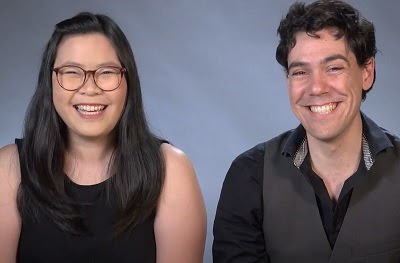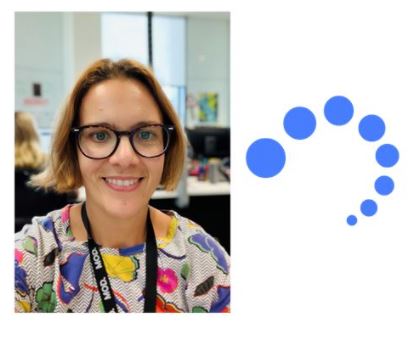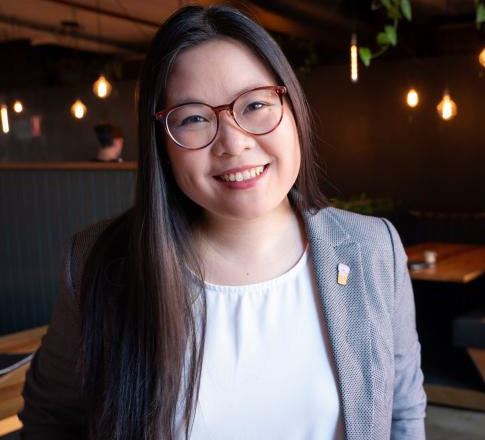Official notice of 2021 Australian Science Communicators AGM (online via Zoom)
This is the official notice of the Australian Science Communicators’ Annual General Meeting, to be held online via zoom on THURSDAY 18 NOVEMBER 2021
The 2021 AGM is an opportunity for members to hear about the year’s events at the national level, and also to have their say about what should happen in the year to come. It also includes reports from the President and Treasurer.
When: Thursday 18 November 2021
Perth: 2:45pm
Darwin: 4:15pm
Brisbane: 4:45pm
Adelaide: 5:15pm
Sydney/Melb/Canberra/Hobart: 5:45pm
Where: Online via zoom (please RSVP and you will be emailed a link to join).
RSVP via Form below or via this link
Only financial ASC members are eligible to attend the AGM. Please check you have renewed your membership community.asc.asn.au
Executive Council Positions
The current ASC President Lisa Bailey will be standing down from the President’s role.
Nominations for President:
Jirana Boontanjai and Tom Carruthers (nominating to act as co-Presidents together and share the position)
With Jirana as an education and engagement professional, and Tom as a communication strategist and technical advisor, they bring a wealth of expertise to the role from working in academia, government and the not-for-profit sectors. They recently reinvigorated Pint of Science as more than a science-in-the-pub event, but instead as a grass-roots program for EMCRs in sci comm and events management.
Camille Thomson
As a long time active member of the ASC, I feel I should take this opportunity to put my name forward and see how I can help shape the future of science communicators. I have had many roles being an educator and communicator myself as well as helping train early career scientists to communicate their work better.
I’d love the opportunity to take on this important role
Nominations for Vice-President
Jen Martin
Hi, I’m Jen Martin, I founded and lead the Science Communication Teaching Program at Melbourne Uni. I joined ASC and attended my first conference back in 2010 and have been incredibly grateful to be part of this diverse and dynamic network ever since. I’ve contributed to ASC in a number of different ways over the years and was very privileged to be recognised as the Unsung Hero of Australian Science Communication for 2019. Now I’d like the opportunity to join the Executive and give back more to the organisation.
Johanna Howes
For those of you who haven’t met me at a past ASC conference, my name’s Joh Howes. After finishing up my PhD in Environmental Chemistry, I realised I liked talking about other people’s research and didn’t enjoy academia myself. So I joined the Science Circus in 2016 and have been working as a Science Communicator ever since. Right now I am one of three Experience Officers (content creators and managers) at Science Space in Wollongong. I spend most of my time training our incredible staff, writing shows and performing for online audiences in our Planetarium and Science Theatre.
I’ve been a part of ASC since 2017/2018 and have really enjoyed all of the networking opportunities. I would love to help out where I can on the committee and specifically speak up for those of us in more regional centres of the country. I’ve been serving as the NSW branch VP for the last 2 years and I’d like to continue learning about the organisation.
If you’ve got any questions, you can send me an email at jhowes@uow.edu.au
Nominations for Secretary
The existing secretary Michelle Redlinger has nominated to continue in the role for 2022.
Nominations for Treasurer
None received as of 15/11/21
Reps on the National Council
Branches are required to nominate and endorse a National Representative to join the National Council at their Branch AGM. If this has happened, please notified the National Secretary.
Agenda items and notices of motions
Proposed agenda items, notices of motion must be received by 5.30pm (AEDT) Monday 15 November 2021 and can be sent to president@asc.asn.au. Note that notices of motion require a proposer and a seconder.
Proxies
Members unable to attend the AGM in person can provide an online proxy. This will allow members to nominate another current ASC member attending the meeting to hold their proxy, or alternatively the National Secretary. Instructions for nominating proxies will be circulated prior to the AGM along with the final notification of official business. Please note, organisations that have a membership may nominate only one (1) representative to vote.
The following items are current as of 31 October 2021:




